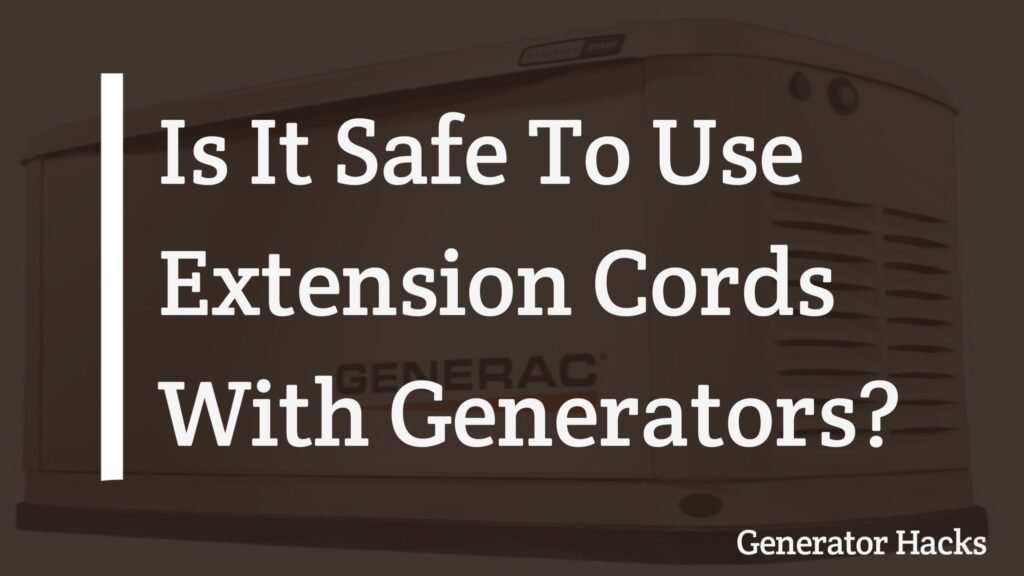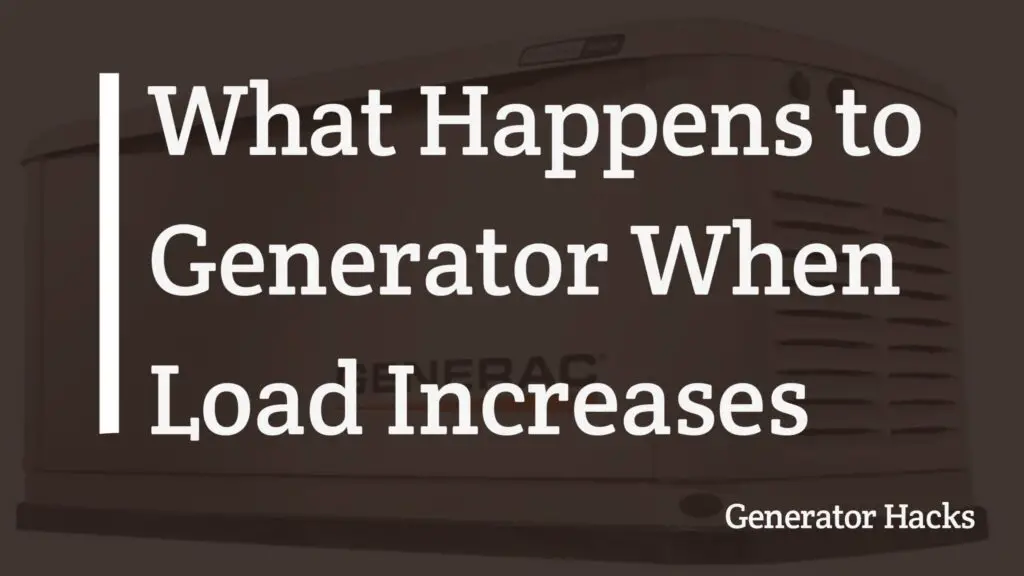As an Amazon Associate, we earn from qualifying purchases. This does not affect the price you pay or the quality of the products you buy. For more information, please read the full affiliate disclosure here.
Your generator is working the previous hours you started it, and now there’s a power outage. For you to start it back, you noticed your generator leaking fuel.
You tried to start it at first, and it started and died, you tried again and again and again, but it did not start and this time the fuel kept leaking.
Why does that happen? Maybe you leave the fuel valve open? Or maybe the carburetor float valve malfunctions?
No matter what the case may be, encountering fuel leakage in your generator can be a cause for concern.
Not only does it pose safety hazards, but it can also impact the generator’s efficiency, for instance not allowing the generator to start.
However, you don’t have to worry much, as in this blog post, we will delve into the various reasons why your generator may be leaking fuel and explore potential solutions to address this issue effectively.
Why Is Your Generator Leaking Fuel? The 10 Causes and Solutions
1. Faulty Fuel Lines
Fuel fuels can be faulty, and in most cases, they are the causes of why your generator is leaking fuel.
This is mostly caused by you exposing your generator to harsh environmental factors, for instance, extreme temperature or even chemicals.
Sometimes when the weather is too hot, it can cause your fuel line to have an effect such as cracks, holes, or even loose connections from the fuel tank to the carburetor or fuel injected.
But here’s the deal: it’s easy to fix and you don’t have to call a professional unless it is something extreme or if you don’t want to get your hands dirty.
Solutions
If you suspect your fuel line is faulty, you must replace it immediately depending on the type of generator you are using.
Just make sure you get the right size and type of fuel line from a professional or even, check your generator’s manual for the size needed.
2. Loose or Damaged Fuel Tank Cap
The fuel tank cap plays a vital role in preventing fuel from spilling out. If the cap is not tightened properly or is damaged, it can result in fuel leakage.
Additionally, a damaged cap may allow water or debris to enter the fuel tank, compromising the quality of the fuel.
Solutions
Ensure that the fuel tank cap is securely tightened after refueling your generator. If the cap is damaged, replace it promptly with a new one designed for your specific generator model.
3. Faulty Fuel Filter
A clogged or malfunctioning fuel filter can disrupt the fuel flow and cause pressure buildup within the system.
This increased pressure can lead to fuel leakage around the filter or other vulnerable areas of the generator.
Solutions
Regularly clean or replace the fuel filter. This simple maintenance task can prevent fuel leakage and ensure efficient fuel filtration.
4. Cracked Fuel Tank
A cracked fuel tank is a serious issue that can result in significant fuel leakage. Cracks can occur due to physical damage, corrosion, or exposure to harsh elements.
Additionally, poor maintenance practices such as using improper fuel or storing the generator in extreme temperatures can contribute to tank damage.
Solutions
If you notice a crack in the fuel tank, it is crucial to replace it immediately. In this case, you have no choice but to contact a professional technician or the generator manufacturer to obtain a suitable replacement tank and ensure proper installation.
5. Worn or Damaged Seals and Gaskets
All generators have different seals and gaskets that prevent fuel from leaking out of the system.
And when they have worked for a long time, these seals and gaskets tend to deteriorate, become brittle, or develop cracks, leading to fuel leakage.
Common areas where these seals and gaskets are found include the fuel pump, carburetor, and fuel injector.
Solution
Regularly inspect and replace worn or damaged seals and gaskets. Seek assistance from a professional technician to ensure proper replacement.
6. Float Valve Malfunction
Generators equipped with a carburetor have a float valve that controls the fuel level within the carburetor bowl.
If the float valve is stuck or damaged, it can cause fuel to overflow and leak from the carburetor.
Solution
Clean or replace the float valve as recommended by the manufacturer. Ensure that it moves freely and maintains the appropriate fuel level within the carburetor.
If you haven’t done this before then I will recommend you meet with a professional to help you if, so you won’t cause more damage to the carburetor float valve.
7. Improper Storage
Improper storage practices can contribute to fuel leakage in generators. Storing the generator in an inclined position or an area prone to vibration can cause fuel to slosh around and potentially leak from the tank or fuel lines.
Solution
Store the generator on a level surface and in a stable position. Avoid storing it in extreme temperatures or environments that may cause excessive vibration.
8. Overfilling the Fuel Tank
Overfilling the fuel tank can lead to fuel spillage, especially when the generator is in operation or has been recently used.
When the fuel expands due to heat generated during operation, it needs some space in the tank to accommodate the expansion. Lack of this space can result in fuel leakage.
Solution
Follow the guidelines for fuel capacity and avoid overfilling the tank. Leave some room for expansion, particularly when refueling before or during generator operation.
9. Fuel Degradation
Fuel can degrade and lose its integrity, leading to the formation of gum and varnish deposits. These deposits can clog fuel lines, injectors, and other components, resulting in fuel leakage.
Solution
Use fresh, high-quality fuel and follow proper storage practices to prevent fuel degradation. Consider using fuel stabilizers or additives recommended to maintain fuel quality.
10. Manufacturer Defect
In rare cases, fuel leakage may occur due to a manufacturing defect in the generator or its components.
This can include faulty welds, defective fuel tank construction, or improperly installed fuel system components.
Solution
If you suspect a manufacturing defect, contact the generator manufacturer or authorized service center for assistance. They can assess the issue, provide a solution, or offer a replacement if necessary.
Conclusion
Generator fuel leakage is a problem that requires immediate attention to ensure safety, prevent damage to the generator, and maintain optimal performance.
By understanding the causes discussed in this blog post and implementing the recommended solutions, you can effectively address fuel leakage issues.
Regular maintenance, inspections, and adherence to the guidelines will help keep your generator in excellent condition, providing reliable backup power when you need it most.
Remember, it’s important to prioritize safety when dealing with fuel leakage in generators. If you encounter a significant fuel leak or are unsure about the cause, it is recommended to seek professional assistance to diagnose and address the problem effectively.
Share


